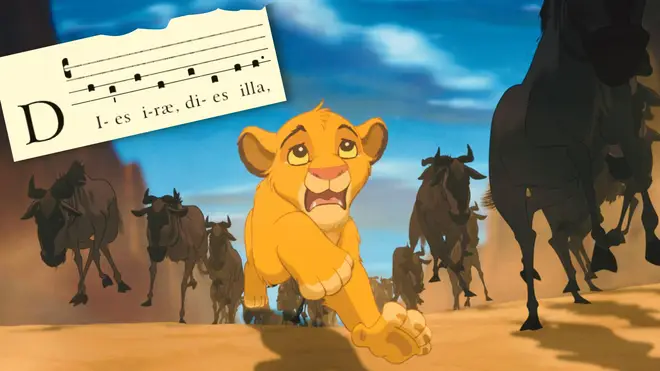On Air Now
Classic FM Breakfast with Tim Lihoreau 7am - 9am
16 August 2023, 11:17 | Updated: 16 August 2023, 11:19

This haunting, 13th-century Gregorian chant has worked its way into many favourite film scores, and plays a special part in Hans Zimmer’s music to ‘The Lion King’.
Whether you heard it first on videotape, Broadway or the West End, or in the 2019 live action movie, Hans Zimmer’s music to The Lion King holds a special place in the hearts of many.
A film score for the ages, it rocketed Hans Zimmer from well-respected film composer to household name when the film was released in 1994, and earned him not only his first award, but his first four. In 1995, Zimmer took home an Oscar, a Golden Globe, and two Grammy Awards, all for his work on the soundtrack.
Through all its iterations over the years Zimmer’s score is powerful, moving and memorable, but its very foundations may be owed to a medieval choral tradition that outdates every version of The Lion King as we know it.
Specifically, an ominous eight-note melody called the ‘Dies Irae’...
Read more: Hans Zimmer didn’t want to score ‘The Lion King’, but his 6-year-old daughter changed his mind

Dies Irae (Mass for the Dead, Sequence, Male Voices)
An ancient eight-note melody known as the ‘Dies irae’, or ‘Day of wrath’ has become one of the most often-quoted musical themes in history. Thought to originate in the 1200s – though some scholars date it as far back as the 6th century – the text comes from a Latin sequence and is most famously used in the Catholic Mass.
It was first set to music by means of Gregorian chant, as heard above, and its sinister opening melody has since been used to great effect by the likes of Berlioz, Brahms, Haydn, and Holst, to represent themes of death and mourning.
Enter the 20th and 21st centuries, and it’s a frequently-used string on the bows of many of the great film composers: Bernard Herrmann, Ennio Morricone, Wendy Carlos, John Williams, and of course, Hans Zimmer.
Read more: The 10 best Hans Zimmer soundtracks

Watch the original Disney trailer for The Lion King (1994)
From Gladiator and Pirates of the Caribbean to The Road to El Dorado and No Time To Die, Zimmer’s scores are peppered with direct quotes and subtle references to the ‘Dies irae’.
In The Lion King, it appears in the music cue titled ‘King of Pride Rock’, at around two and a half minutes. Listen out for the high-pitched short, stabbing notes, played by synthesised strings, in a verbatim quote of the medieval theme.
But the ‘Dies irae’ also lies hidden within another of Zimmer’s musical themes for the film. ‘Mufasa’s theme’ can be heard played on low strings on the above, cue shortly after the first quote, as well as on a flute at around four minutes.

It’s one of the most recognisable themes from the movie, and the haunting echo of this Gregorian melody lies concealed within.
Zimmer disguises the ‘Dies irae’ by prefacing it with two notes that lead up to the theme, and elongating the second note of the melody. He also interrupts the melody halfway through, with an embellishing note – but take that note away, and we have a full, clear statement of the ‘Dies irae’.

Kill Him
Perhaps the most apt use of the ‘Dies irae’ in Zimmer’s The Lion King score comes as Scar commands his hyena henchmen, Shenzi, Banzai, and Ed, to chase young Simba through the canyon and to “kill him”.
With the impending fear of death snapping at his heels, Simba races away as a fully-orchestrated score plays out the four notes of the ‘Dies irae’, punctuated by low brass stabs between each note.
The Lion King is just one of many examples of Zimmer’s use of the ‘Dies irae’, and Zimmer himself is far from the first (or last) to use it. So next time you’re watching your favourite film, keep an ear out and you just might catch the theme yourself...